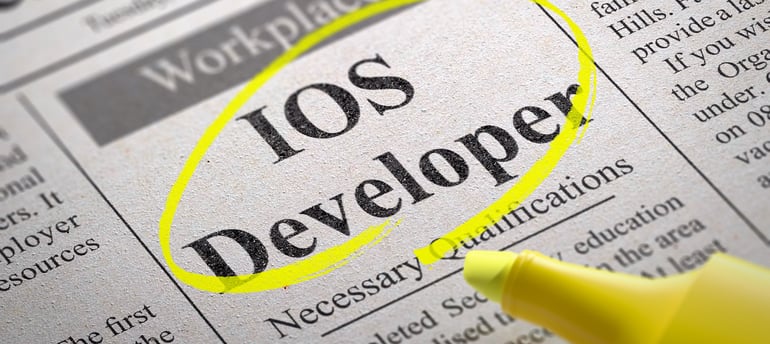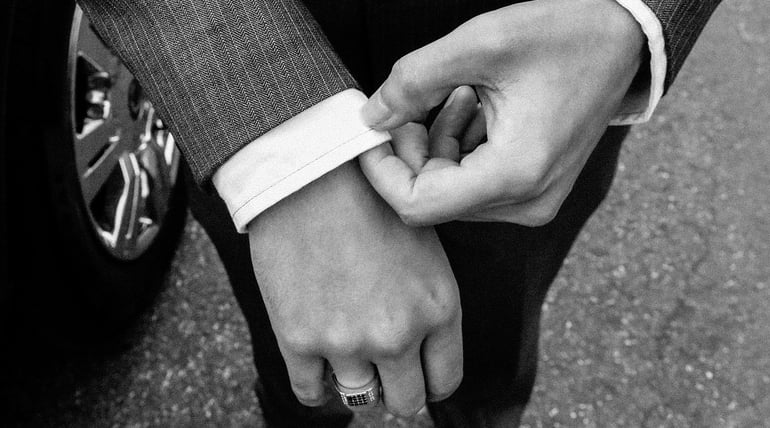Congratulations, you've worked hard on your resume, applied to several job postings, and finally got the interview you deserve! What now? Follow these interview preparation tips and they'll help you land the perfect job that'll turn into a career.
Interviews can be an intimidating and stressful experience. Having to deal with screening phone calls and emails before you even get asked to come in for the interview makes many people cave under the pressure. That alone can ruin their chances to get hired. However, those that rise to the challenge are more likely to be chosen for the job, and you can be one of the few successful candidates. Here are some suggestions and steps for preparing for your next interview.

Assess the position and the company. Before the interview, look over the position requirements and qualifications and get a feel for the type of professional they are seeking. Also, do research on the company itself to determine their culture and work dynamic. You should be answering questions such as: Are they looking for someone who is a team player? Are they wanting someone who likes to work alone? Does this position within a company follows strict rules or do they utilize more unconventional methods? Keeping up to date with their breaking news can give you a slight edge over the competition. To do this, sometimes it’s easiest to follow the company’s social media sites. Then during the interview you can casually mention any of the current topics you've read about. This shows initiative and demonstrates to the employer that you are truly interested in this position and their company.
Establish questions. Generally in an interview the interviewee is the one being asked questions, so switch it up and ask the interviewer some of your own. Keep these in mind: What are the company benefits? Where do you see the company going in the next 10 years? How do you like working here? These are all acceptable questions that can enhance your chances of being hired. Asking questions not only gives you more information, but it also shows the interviewer that you are genuinely interested in the position. Plus, it takes the focus off of you for a few minutes so you can catch your breath.
Prepare. There are a lot of things to consider when it comes to preparing for an interview. Getting everything ready beforehand allows you extra time in case any plans change or an emergency arises.
- Prepare your clothing. Nothing is worse than having to piece together an outfit the morning of your big interview, only to find that you forgot to iron your shirt and have no clean socks. Make sure you check over your outfit ahead of time so this does not happen. Also be sure to keep your outfit professional. Know the position for which you are applying and dress for one level above. At a job interview, your attire makes a statement about yourself before you even open your mouth. Most hiring managers believe that people who dress appropriately for a job interview are more likely to be successful because they look the part.
- Prepare your transportation and plans. Make sure that you have planned ahead when it comes to making it to the interview on time. Look up the route you will take to get there, assess the trip and gauge the approximate length of time it takes to arrive. Then give yourself an added 25-30 minutes of travel time on top of that to make sure you get to the interview with time to spare.
- Prepare for questioning. Ask a friend to Google the most frequently asked interview questions and have them quiz you. Blindly going over the questions will help you get ready to confidently answer questions on the spot and ready you for those on-the-spot and off-the-wall questions.
- Prepare your portfolio. Review, edit, and print your resume along with any other relevant materials that could enhance your chances or prove your abilities. Printing writing samples, photos or any other substantial proof that you have the work experience or specific skills will make an excellent impression on the interviewer.
- Prepare yourself. Mentally and physically brace yourself to be stressed. Interviews can be really draining and discouraging, so it is important to keep yourself healthy and happy to combat any negative energy. Make sure you eat well and get a full night's sleep before the interview.

Email and phone communications. To ensure that you come off professionally, it is important to know the basic rules and etiquette of email and phone communications. Due to the fact that neither of these are done in person, it can be difficult to get across the message and image you want to portray.
- Emails. The key to efficient email communication is remaining short, formal, and keeping the message as clear and simple as possible. Always address the recipient as their proper title (e.g., Mrs., Ms., Mr., Dr.) and use the universal letter format; opening with Dear and ending with sincerely. Make sure to utilize white space and to start a new paragraph when you change the topic of discussion. (Need some help - check out these 10 tips on writing the perfect email)
- Phone calls. Phone calls are simple but very easy to mess up. You want to stay on topic, enunciate, keep the conversation short, and use manners, but try not to come off as sounding rehearsed or robotic. While on the phone it is also important to have a pen and paper at hand, so you can take notes as the other person is speaking without having to scramble for the pen and paper at the last second. Another tip that we find beneficial is to find a quiet room to talk in; this prevents any background noise from interfering and it keeps you from getting distracted.
Throughout the pre-interview period, it is essential to prepare for all aspects of the interview. Keep all communication formal and professional when emailing or calling your potential employers, and make sure to be yourself. Effective communication paired with light research, a little preparation, and a confident attitude can really make a difference come interview day.

















